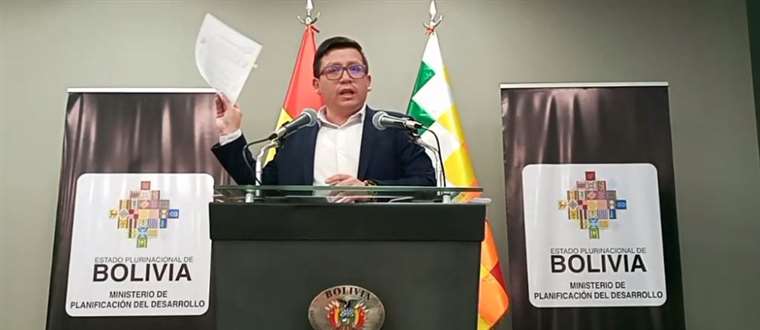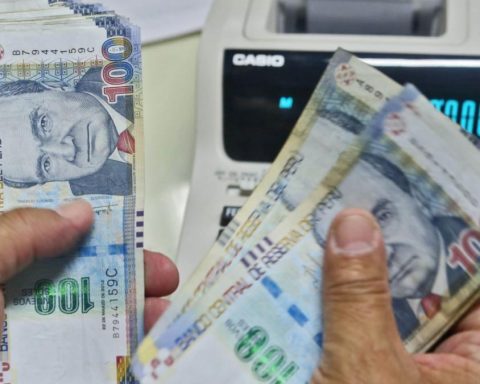A slight upward revision of the revenue estimates for the next year made the economic team lower the estimate of the primary deficit for 2023. According to the next year’s Budget project, sent today (31) to Congress, the negative result target will correspond to R $63.7 billion for the Central Government – made up of the National Treasury, Social Security and the Central Bank.
The deficit will be slightly smaller than that stipulated by the Budget Guidelines Law (LDO) of 2022, sanctioned last week. The LDO sets a target of R$ 65.9 billion for the next year.
The primary deficit next year, however, could be higher. That’s because the bill sent to Congress today considers the Aid Brasil a minimum of R$ 400, a value that will be in effect from January 1st. The eventual maintenance of the minimum benefit at R$ 600, an amount paid this semester, requires the National Congress to approve a proposal to amend the Constitution.
The primary deficit represents the negative result of the government’s accounts, disregarding the payment of interest on the public debt. Since 2014, the public sector has registered primary deficits. For 2022, there is a possibility that the Central Government – National Treasury, Social Security and Central Bank – will close the year with primary surplusas admitted yesterday (30) by the Secretary of the National Treasury, Paulo Valle.
Despite the chance of an improvement in public accounts this year, the Budget project predicts a primary deficit of 0.6% of the Gross Domestic Product (GDP, the sum of the wealth produced in the country) in 2022 and 2023, with a projection of a primary surplus of 0. 3% in 2024, when public accounts would turn positive again
Brazil aid
The Special Secretariat for Treasury and Budget of the Ministry of Economy presented an estimate of the impact of Auxílio Brasil of R$ 600 on government spending in the next year. According to the agency, maintaining the value of the benefit would cost 0.48% of GDP in 2023, raising total expenditures next year from 17.6% to 18.1% of GDP, which would make the 2023 primary deficit rise from 0.6% to 1.1% of GDP.
Even with the Brazil Aid of R$ 600, government spending would fall in relation to 2022. For this year, the economic team stipulates that expenses will be at 18.9% of GDP. Regarding revenues, the proposal predicts a drop from 18.2% to 17% of GDP. This is because the project includes exemptions of R$ 80.2 billion.
Of the total exemption of BRL 80.2 billion, BRL 52.9 billion would correspond to the extension of tax reductions on fuels, BRL 17.2 billion for measures to encourage specific sectors of the economy and BRL 10 billion of reductions taxes for the entire population.
Spending ceiling
The 2023 Budget project calculates the spending ceiling limit for next year at R$ 1.8 trillion. The Executive Branch will be able to spend BRL 1.722 trillion, with the other branches spending BRL 77.866 billion.
The value was calculated based on the 2022 spending ceiling, plus the estimate of 7.2% for official inflation by the Broad National Consumer Price Index (IPCA) accumulated from January to December this year. Until last year, the index of correction of the expenditure ceiling for the following year was defined based on the IPCA accumulated between July of two years before and June of the previous year. With the approval of the constitutional amendments that made the payment of large amounts (debts recognized by the Courts definitively) in installments, the expenditure ceiling started to be adjusted for inflation from January to December of the previous year, which requires the presentation of a estimate in the Budget proposal.
Golden Rule
The proposal for the 2023 Budget predicts that the insufficiency of the golden rule – a kind of ceiling for public debt – will total R$ 89.2 billion next year. The government will have to ask Congress for authorization in that amount to finance current expenditures through the issuance of public debt bonds. The amount is lower than the shortfall of BRL 105.4 billion that was included in the 2022 Budget.
Established by Article 167 of the 1988 Constitution, the golden rule determines that the government cannot borrow to finance current expenditures (such as the maintenance of the public machine), only for capital expenditures (such as investment and amortization of public debt) or to refinance public debt. In recent years, successive fiscal deficits have jeopardized compliance with the rule, which has led the Treasury to seek sources of funds to have cash on hand and reduce the need to issue government bonds.

















